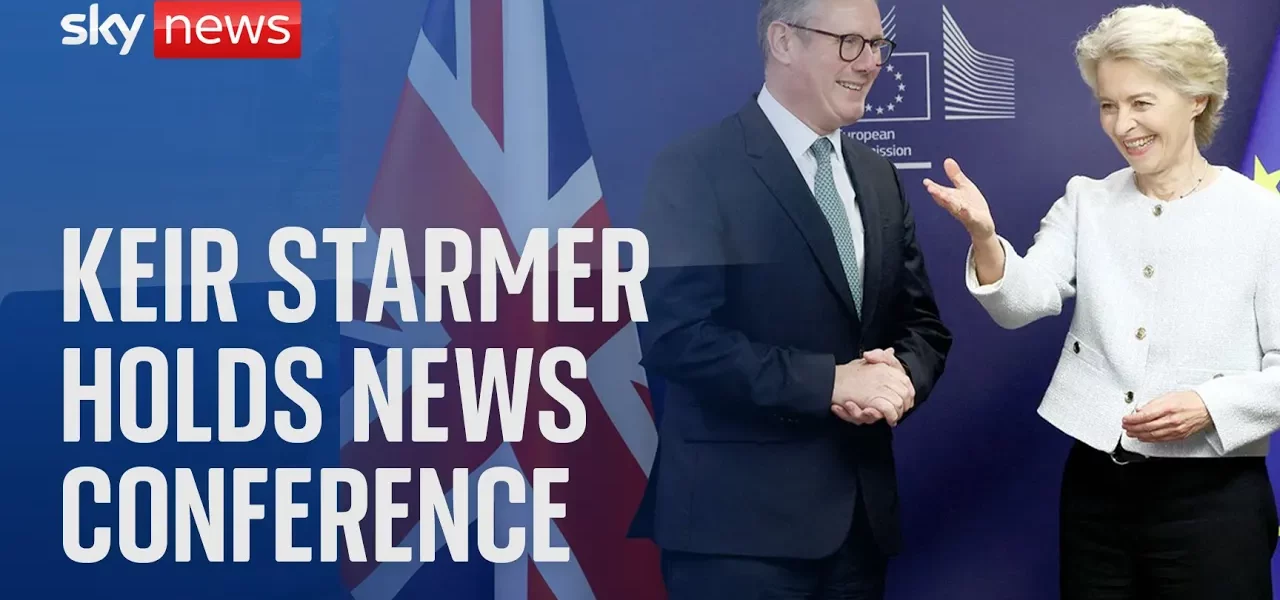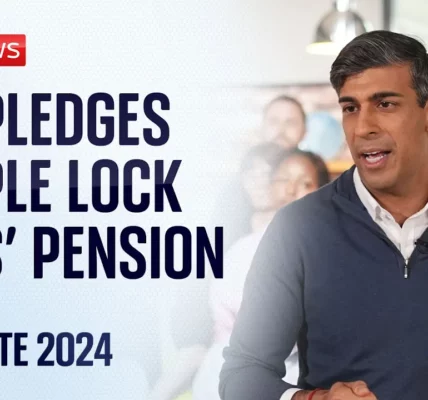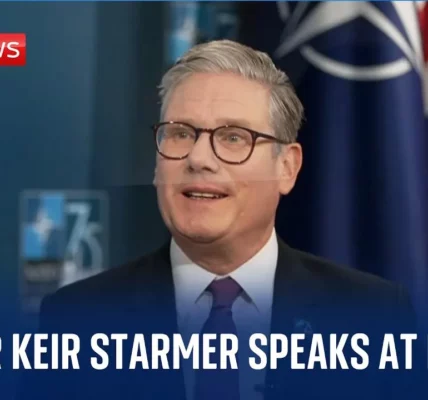UK Prime Minister’s Meeting with Ursa Ferion: Key Takeaways

This article delves into the recent meeting between the UK Prime Minister and Ursa Ferion, President of the European Commission. We explore the discussions surrounding security, economic relations, and international cooperation amidst rising global tensions.
Introduction
The recent meeting between the UK Prime Minister and Ursa Ferion, President of the European Commission, marks a pivotal moment in UK-EU relations. Amid escalating global conflicts, particularly the crisis involving Israel and Iran, the leaders convened to reaffirm their commitment to security, economic partnership, and collaborative problem-solving. This article will provide an in-depth analysis of the key points discussed during the meeting, the implications for future cooperation, and the challenges that lie ahead for both parties.
Security Concerns in the Middle East
One of the focal points of the meeting was the condemnation of Iran’s recent attacks on Israel. The leaders expressed unanimous support for Israel’s right to defend itself, highlighting the necessity of restraint from all parties involved to prevent further escalation. As tensions in the Middle East continue to rise, the implications for global security cannot be overstated.
Key Highlights: Condemnation of Violence
- G7 members collectively condemned Iran’s actions.
- Emphasis on Israel’s right to self-defense.
- Call for ceasefires in Lebanon and Gaza to foster political solutions.
Regional Stability and International Cooperation
The leaders acknowledged the urgency of maintaining regional stability, especially in light of Russia’s ongoing invasion of Ukraine. Strengthening ties with allies and partners was deemed essential for promoting peace and security on a broader scale.
Economic Relations and Growth Initiatives
The meeting also addressed the economic relationship between the UK and the EU, with a focus on collaborative growth strategies. The Prime Minister emphasized the desire for a pragmatic approach to negotiations that would benefit both sides economically.
Key Areas for Collaboration
- Joint initiatives on climate change.
- Energy security and sustainable practices.
- Addressing illegal migration through cooperative measures.
Future Summits and Strategic Frameworks
To solidify their relationship, the leaders agreed to hold regular UK-EU summits at the leader level, with the first summit scheduled for early next year. This initiative aims to review progress and ensure accountability in their discussions.
Challenges Ahead: Maintaining Sovereignty
Despite the positive tone of the discussions, both leaders recognized that challenges remain. The UK Prime Minister reiterated the government’s firm stance on key issues such as freedom of movement, the customs union, and the single market. The importance of maintaining sovereignty while fostering cooperation was underscored throughout the meeting.
Firm Stances on Negotiation Points
- No return to freedom of movement.
- No re-entry into the customs union.
- No return to the single market frameworks.
Constructive Engagement
While upholding these principles, the leaders expressed commitment to finding constructive ways to work together. This approach aims to foster a productive dialogue focused on deliverables rather than contentious issues.
Conclusion
The meeting between the UK Prime Minister and Ursa Ferion represents a significant step towards rebuilding and strengthening UK-EU relations. With a shared commitment to security, economic collaboration, and pragmatic engagement, both sides appear ready to face the challenges ahead. As they lay the groundwork for future summits and negotiations, it will be crucial for both parties to maintain an open dialogue and a focus on mutual benefits. As developments unfold, staying informed will be key for understanding the implications of these international relations.
For further insights into UK-EU relations and their impact on global politics, explore our related articles on international diplomacy and economic strategies.
“`




